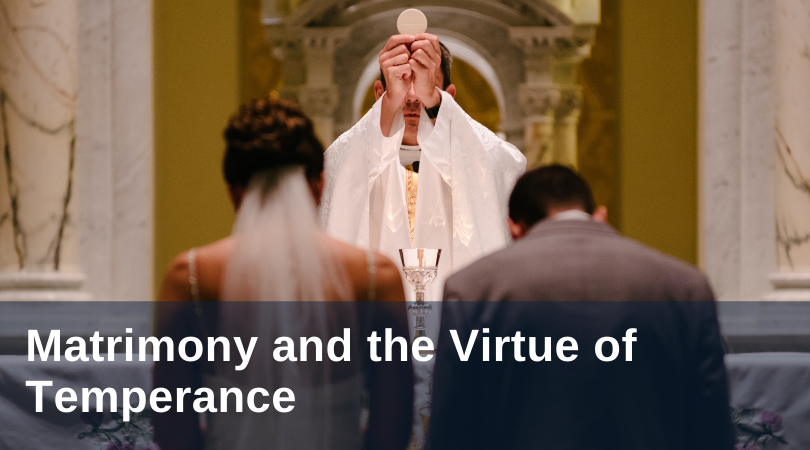
For many years I heard phrases such as: “religious life is a higher calling than marriage” and “those who choose religious life want to live their lives entirely for the Lord.” But I rarely heard language which edified and elevated the vocation of married life. That was until I took a course with Dr. Timothy O’Malley on the Nuptial Mystery. This vocation, which can seem so ordinary, was illuminated through Scripture and the works of many theologians. I finally was able to grasp intellectually that which I had always known to be true—that the Sacrament of Marriage is holy and sacred, an icon of Christ’s love poured out for us on the Cross.
One of the Gospel readings that can be used at a Nuptial Mass is John 15:12–16, the account of Jesus at the Last Supper, in which he tells his disciples to love one another as he has loved them and that “no one has greater love than this, to lay down one’s life for one’s friends” (John 15:13). At first glance, this is a beautiful passage in which Jesus challenges us to a heroic, saintly love—a love that is sacrificial and self-emptying. Clearly, a very fitting passage for a newlywed couple who is about to embark on a lifelong journey of love.
However, Jesus not only commands us to love one another as he has loved us, to die for a friend; but he models that love. Hidden among beautiful, yet simple words, this Gospel reading from John brings to mind the Last Supper, which is Christ’s wedding banquet, and his Crucifixion, which is a gift of total love:
When we come to the Last Supper and the passion of Jesus, everything changes. The hour has finally come for Jesus to give the supernatural wine of the banquet of YHWH. However, instead of changing water into wedding wine as he did at the wedding at Cana, Jesus now changes the wine into blood—the blood of the new and everlasting marriage covenant. (Brant Pitre, Jesus the Bridegroom: The Greatest Love Story Ever Told, 53–54)
Marriage, in its sacramental form, is a beautiful sign to the Church of Christ’s sacrificial love, a reminder that we are called to love one another as Christ has loved us. Behind the veil of an ordinary life, ordinary clothes, behind the monotony of routine and the busyness of work and tending to children and family members, married couples die to self—the way Christ died for us—and thus reflect back all whom they encounter this humble love of God.
But what does one need to love sacrificially? Grace and virtue, particularly the virtue of temperance. Temperance is one the four cardinal virtues. Governing both mind and body, it “moderates the attraction of the pleasures of the senses and provides balance in the use of created goods” (CCC §1838). These attractions and pleasures are often born of primal needs and urges—hunger, thirst, relationship. Pleasures themselves are not inherently evil, but when overindulged (or overly restrained), these activities and desires often lead us to sin, which damages our relationship with self, others, and God. In other words, to be intemperate is to be selfish. Selfishness, particularly within the context of marriage, is a poison.
If marriage requires sacrificial love, temperance ought to be nurtured and exercised. The supernatural virtue of temperance enables us to die to self and to will the good of the other—to love one’s spouse as Christ loves his Church: for better, for worse, for richer, for poorer, in sickness and in health, until death do us part. What a wondrous love.
Like what you read? Submit your email below to have our newest blogs delivered directly to your inbox each week.
Featured image by Josh Applegate via Unsplash


